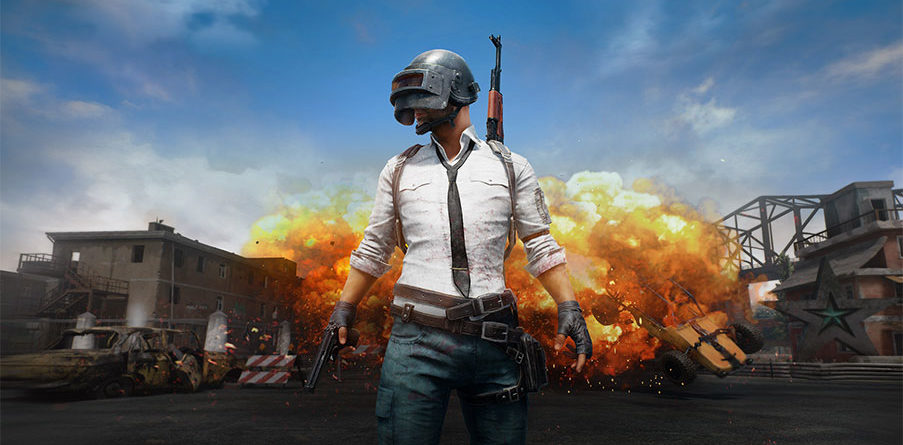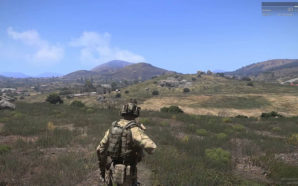Steam’s Early Access program has been an interesting and somewhat contentious experiment since it launched in March 2013. The recent PlayerUnknown’s Battlegrounds (PUBG) has taken the world by storm–selling over 1 million copies in just a single month–and is a great example of the impact that Early Access can have on a game. But not every Early Access project is quite so successful. Demonstrated by the rather shocking fact that only 25% of Early Access titles have been fully released since its inception four years ago. Early Access can be an excellent service, but when it fails it can be extremely harmful to everyone. The question is: is Early Access a good thing? Is it harmful to players and a bad idea for developers?
What is Early Access
Early Access is essentially what it sounds like. You get access to a game early. As in, not yet finished, incomplete, or simply a work-in-progress. It allows games to establish a community and grow alongside them, and gather player feedback along the way. In theory, players who buy a game still in development can help the developers to improve and expand their game. A lot of very useful information can be gathered by developers, and the experience of shaping a game into your vision of what it could or should be can be rewarding for players, who so often feel their feedback goes unnoticed by developers.
However, Early Access has had such a turbulent history. There are too many examples of games where either the players or the developers got screwed over by the Early Access process. Is Early Access something that players should be wary of? Or is it simply something that developers should avoid unless they have a very clear and transparent plan?
Early Access Done Right
Darkest Dungeon is a good example of a game that used Early Access effectively. A gruelling and wonderfully stylised turn-based RPG that uses the fears of your dungeon-crawling crew to make for a tense and stressful experience. When it launched in Early Access, it was already a polished and well-rounded experience but was simply not content-complete. Players who bought into the Early Access program got a tight and well-crafted game with a whole bunch of style and originality. Darkest Dungeon offered exactly what Early Access games should: a game with enough content to be worth paying for but with the promise of further updates and more content.
Dead Cells is another good example of a game that launched in Early Access. For those unfamiliar, Dead Cells is a 2D roguelike (or a “roguelite”, if you prefer) with engaging progression inspired by Rogue Legacy, a tough-but-fair difficulty, and tight controls. Dead Cells is great game so far, and one that is regularly being updated. I’ve put a good 14 hours into the game, and that’s where my problem lies. The game isn’t even technically out and I feel like I’m already done with it.
Much like with Darkest Dungeon, the developers are regularly updating it with tweaks and additions that all sound smart and well-considered, but I’m not invested enough to go back to the game when I see a patch downloading. Am I going to revisit these games when they eventually reach “1.0” and release officially? Maybe? Probably not, though, I’m sure I’ll be playing something else by then. As for Darkest Dungeon, which left Early Access in January 2016, the answer is: no, I never did go back to it.
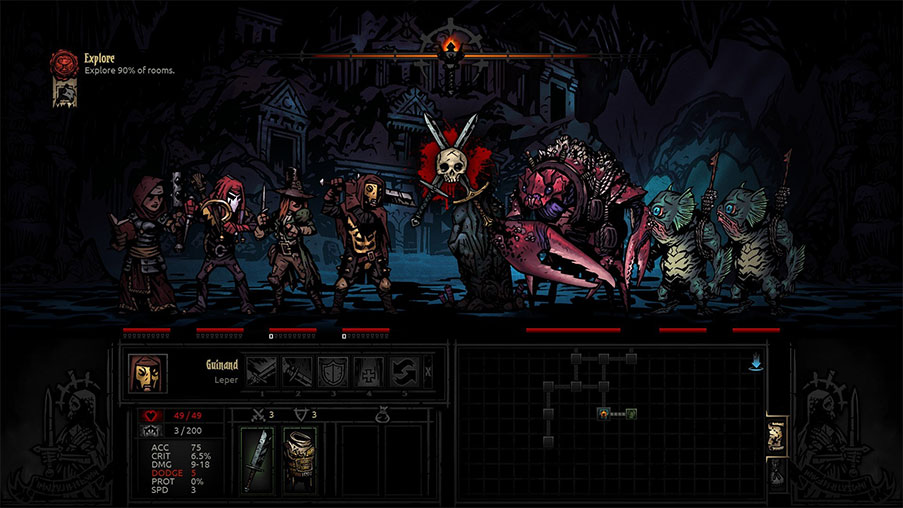
Darkest Dungeon’s dungeon-crawling gameplay (Credit: wired.com)
So What’s The Problem?
The problem is I feel the developers of Early Access titles may be harming themselves. By releasing their game in a perfectly stable yet incomplete state, they are potentially doing two things. Firstly, they are likely scaring away customers who have already been burnt by the Early Access program before, or who simply don’t want to pay for an unfinished game. Secondly, they are essentially dividing their launch window hype and their moment to headline the news cycle into two potentially underwhelming stories. One “this game is now in Early Access” and another “that Early Access game is now out”. Something that I feel, for games as singular and focused as Dead Cells and Darkest Dungeon, is more harmful than beneficial.
Perhaps the problem is more a question of what kinds of games use the Early Access platform. Games like PUBG and DayZ serve as good evidence that rich, highly-replayable mutliplayer games can do very well in Early Access–in spite of the game’s polish (because let’s face it, DayZ was real broken for a long time in its early days). For single-player, experience-driven games, even ones with a high level of replayability, releasing too early may have a negative effect. Most players won’t stick around long enough to see the game fully fleshed out and thus the word-of-mouth may be suffer.
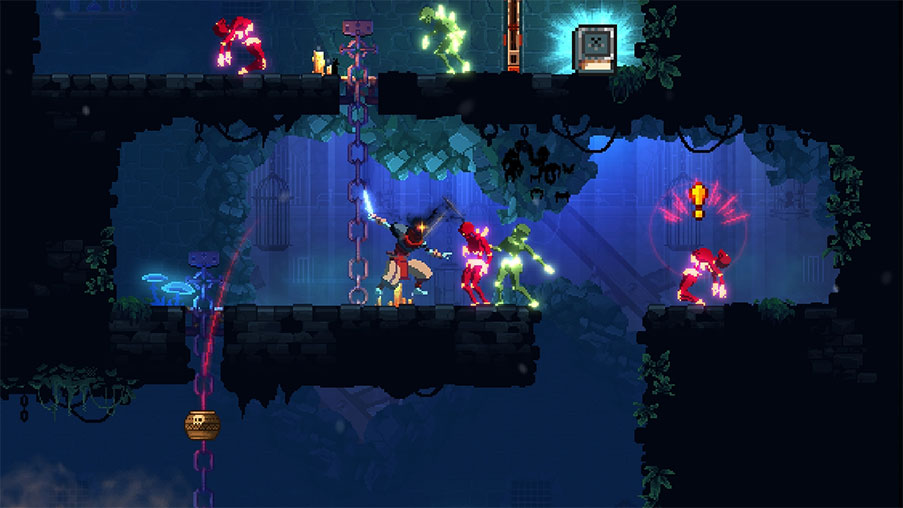
Dead Cells in action (Credit: steamstatic.com)
Early Access Games That Are Harmful To Players
I’m sad to say, but there are far more examples of Early Access gone wrong. Very wrong. One of the most egregious examples would certainly have to be the notorious WarZ (later changed to Infestation: Survivor Stories after WarZ received such universal scorn). I could spend paragraph after paragraph exhaustively listing the problems that the game had, but a quick summary for those who missed that whole nightmare: WarZ was a blatant and very broken rip-off of the then-popular DayZ, it was extremely broken, and the developers banned any users with negative feedback from the game’s Steam forums. If you want to read more about the nightmare that was WarZ, see here.
Essentially the point is that people who bought this game got burnt badly. Fans were anticipating one game but were given a rushed and broken cash-in. In this case, WarZ received so much negative attention that the developers completely destroyed their own reputation, burning themselves as well as their players.
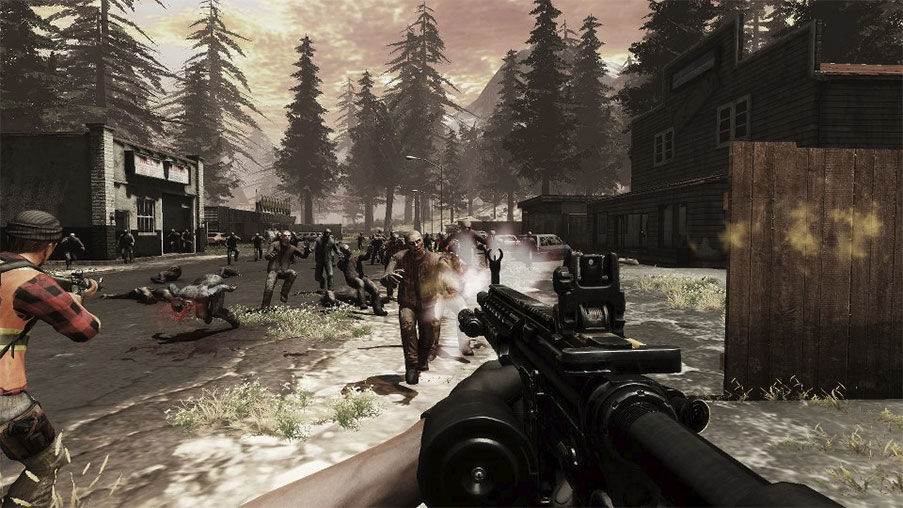
The nightmare that is WarZ in action (Credit: tmcheats.com)
Another example comes from Godus, Peter Molyneux’s promised follow-up to his beloved classic Populous. Everything about Godus’ development went wrong, and the result was an unfinished product that was far from delivering what it promised and had no hope of ever getting there. Godus was also crowdfunded on Kickstarter and raised approximately $800,000, leading to further dismay from fans who had actually helped fund the game’s development. The story of Godus’ development and Early Access cycle are quite a crazy one, and one that is well-summarised here, if you’re interested. The point isn’t to highlight the mistakes made by 22Cans and the promises Molyneux failed to deliver. People have already written exhaustively about all that.
Early Access Is A Minefield So Be Careful!
The point is how dangerous releasing an unfinished game can be. Especially if you cannot be sure you will ever be able to finish the game. Players and fans will get burnt, their money wasted and their faith in unfinished games eroded, whilst developers can potentially ruin their careers (Peter Molyneux will probably be fine, but his reputation is certainly in tatters after Godus). If Godus had released as a normal video game, it may well have done just fine, and it could well have scratched that Populous itch that Molyneux’s fans were promised.
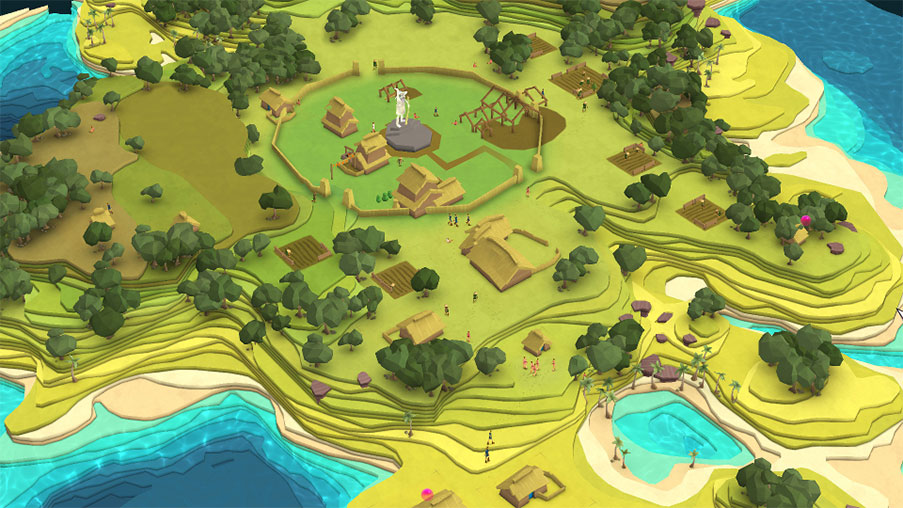
The promise of Godus wasn’t even close to the end result (Credit: kinja-img.com)
Ultimately, Early Access presents an interesting opportunity for both developers and players. Best case scenario: players get to play a game early whilst developers can tune their game to player feedback. Unfortunately, it doesn’t usually work out that way, and it’s a very difficult thing to balance. Players need to be wary of investing in Early Access titles, but developers should also be wary Early Access. It’s a risky and uncertain venture that could ruin a game and its potential if not handled properly. Consider how the game could actually benefit from being in Early Access, and most importantly–don’t abandon your players!
Just be careful, folks, and learn from past mistakes.
What do you think about Early Access? Is it a good idea, or a disaster waiting to happen? Let us know in the comments below!




